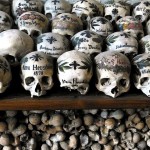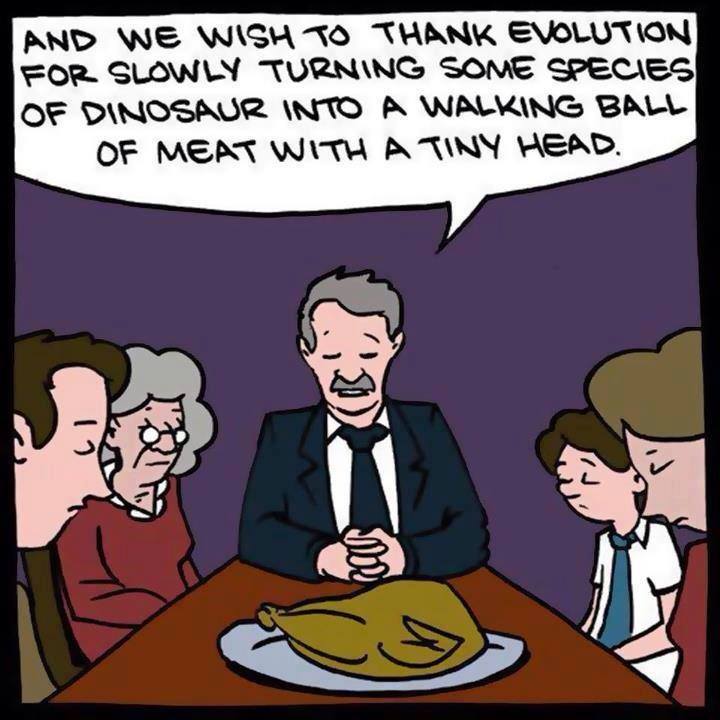
Today is a busy day, so I’ll have to confine myself to some quick remarks. While I’m not theologically set against evolution in a way that the topic of my dissertation (Czeslaw Milosz) was, I am fascinated by books that deal with the unique problems of conceptualization and language that it poses for theology. The books in the Cosmos TOP 10 Science and Religion list have helped me think some of these things through.
But we won’t be talking about that today. Even though eating is a frequent activity–more frequent for some of us than others–it garners precious little attention from philosophers and theologians. Perhaps eating is so ubiquitous that it escapes intellectual attention? Or maybe intellectual work is somehow in competition with eating? But then we talk about devouring books. I’m puzzled.
The most widely circulated books on the topic like Levi-Strauss’ The Raw and the Cooked, Michel de Certeau’s The Practice of Everyday Life, Vol. 2: Living and Cooking and the incommparable classic Eat, Pray, Love have been gobbled up by many of you by now. So what else is there? Take a look and these books and their blurbs.
What follows is a reduced TOP 10 list (poke around in the TOP 10 archives here). I hope the self-control I exhibit by limiting myself to only five books will help to encourage you to moderate your eating habits over the next few days. Such a transformation of your habits could leave more money for books, or the collection plate.
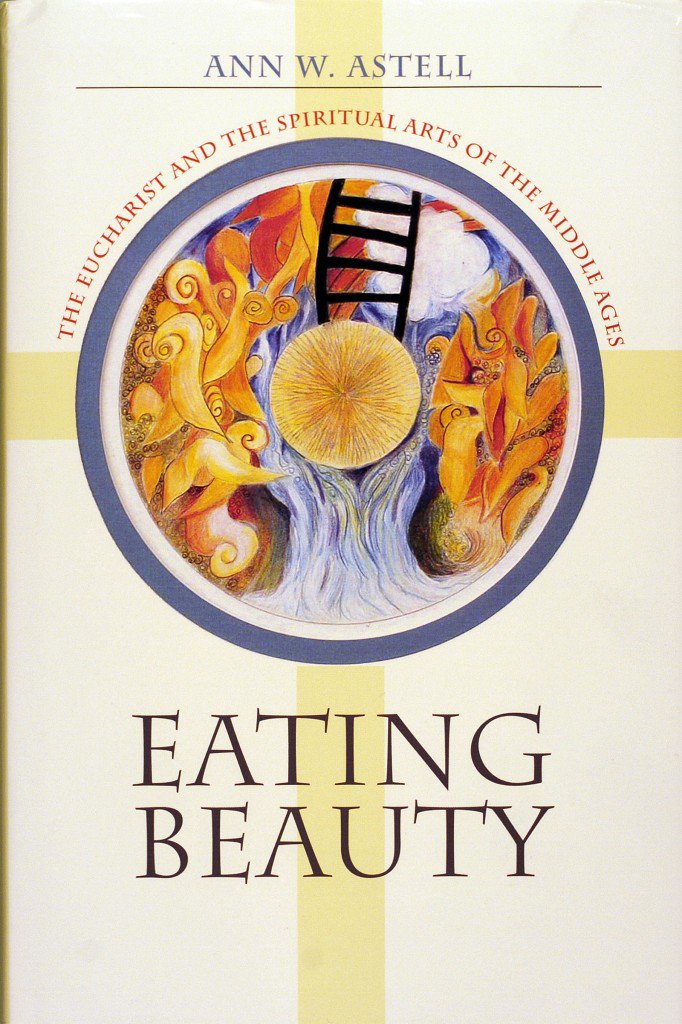
“The enigmatic link between the natural and artistic beauty that is to be contemplated but not eaten, on the one hand, and the eucharistic beauty that is both seen (with the eyes of faith) and eaten, on the other, intrigues me and inspires this book. One cannot ask theo-aesthetic questions about the Eucharist without engaging fundamental questions about the relationship between beauty, art (broadly defined), and eating.”—from Eating Beauty
In a remarkable book that is at once learned, startlingly original, and highly personal, Ann W. Astell explores the ambiguity of the phrase “eating beauty.” The phrase evokes the destruction of beauty, the devouring mouth of the grave, the mouth of hell. To eat beauty is to destroy it. Yet in the case of the Eucharist the person of faith who eats the Host is transformed into beauty itself, literally incorporated into Christ. In this sense, Astell explains, the Eucharist was “productive of an entire ‘way’ of life, a virtuous life-form, an artwork, with Christ himself as the principal artist.”
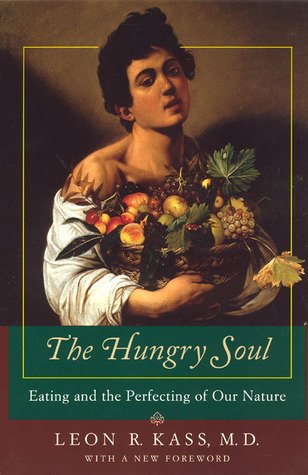
Eating, observes Kass, a physician and biochemist who teaches literature and philosophy at the University of Chicago, is a “great paradox.” To preserve life, individuals necessarily destroy life. Yet, he argues, if this urgent, most basic animal necessity is humanized through table manners, hospitality, sharing, good conversation and ritual, eating becomes a means to celebrate and broaden human community, friendship and values. This stimulating, original philosophical inquiry views eating among humans as a key to our place in the natural order and as a manifestation of the “hungry soul” that seeks satisfaction in activities motivated by ambition, curiosity, affection and awe. Kass concludes by arguing that Jewish dietary laws are one example of a code that embodies an understanding of the ethics of eating and a reverence for life.

In Stone and Dung, Oil and Spit Jodi Magness unearths “footprints” buried in both archaeological and literary evidence to shed new light on Jewish daily life in Palestine from the mid-first century b.c.e. to 70 c.e. — the time and place of Jesus’ life and ministry.
Magness analyzes recent archaeological discoveries from such sites as Qumran and Masada together with a host of period texts, including the New Testament, the works of Josephus, and rabbinic teachings. Layering all these sources together, she reconstructs in detail a fascinating variety of everyday activities — dining customs, Sabbath observance, fasting, toilet habits, burial customs, and more.
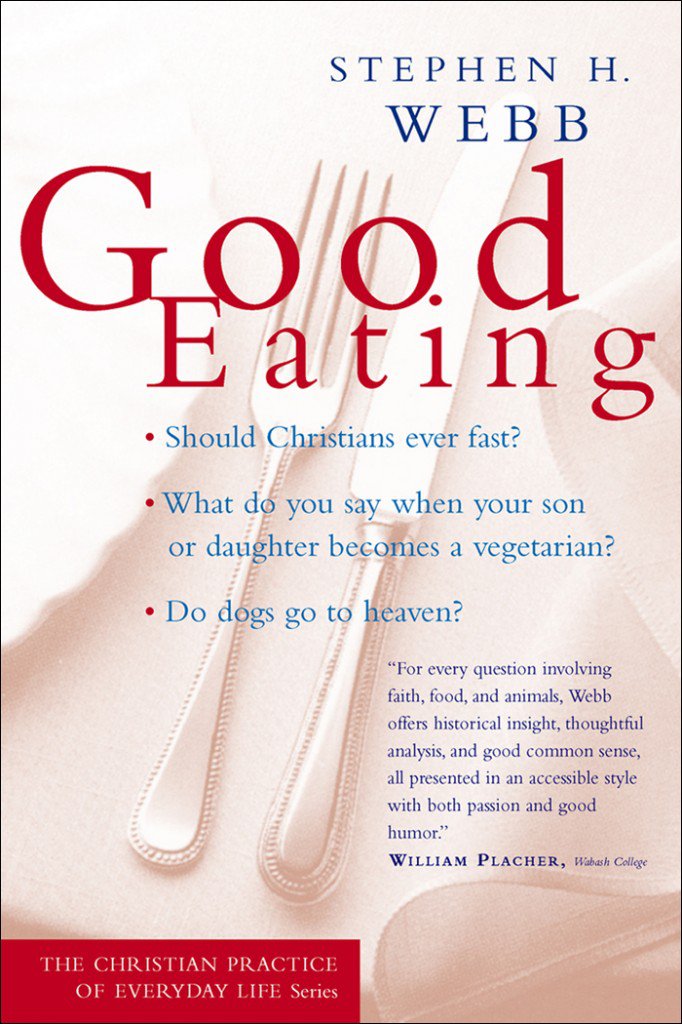
In the diet-obsessed U.S., a book beginning with the claim that “the unexamined meal is not worth eating” really should find an audience, especially given the worldwide significance of food-related issues and the fact that Christianity is defined by a meal. In Good Eating Webb proposes a biblical alternative to the animal-rights movement, which he sees as largely anti-Christian. He articulates a biblical understanding of human-animal relationships by, he insists, sharpening the distinction between humans and animals rather than blurring it. He constructs his critique within a theology of diet, thereby taking up a long-neglected tradition that was influential in early Christianity and addressing historic questions about food and animals in relation to John the Baptist, Jesus, and the early church. Food, he notes, is essential in rituals that define us: we are what and how and with whom we eat. Hence, Webb writes near the end of the book, we need animal rites rather than animal rights. Even readers inclined to say that we need both will find the book fascinating.

The links between religion and food have been known for centuries, and yet we rarely examine or understand the nature of the relationship between food and spirituality, or food and sin. Drawing on literature, politics, and philosophy as well as theology, The Theology of Food unlocks the role food has played within religious tradition.
- A fascinating book tracing the centuries-old links between theology and food, showing religion in a new and intriguing light
- Draws on examples from different religions: the significance of the apple in the Christian Bible and the eating of bread as the body of Christ; the eating and fasting around Ramadan for Muslims; and how the dietary laws of Judaism are designed to create an awareness of living in the time and space of the Torah
- Explores ideas from the fields of literature, politics, and philosophy, as well as theology
- Takes seriously the idea that food matters, and that the many aspects of eating – table fellowship, culinary traditions, the aesthetic, ethical and political dimensions of food – are important and complex, and throw light on both religion and our relationship to food









